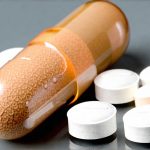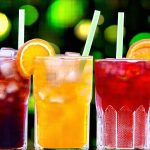Living with bladder sensitivity, overactive bladder (OAB), or interstitial cystitis (IC) often means navigating a complex relationship with fluids. Many people find that certain beverages significantly aggravate their symptoms – urgency, frequency, pain, and discomfort. The challenge isn’t necessarily avoiding all drinks, but rather identifying those that are less likely to trigger flare-ups. This requires understanding how different drink components interact with the bladder and finding suitable alternatives that maintain hydration without exacerbating your condition. It’s a personalized journey, as sensitivities vary greatly from person to person, making careful observation and adaptation crucial.
Hydration is essential for overall health, but for those with sensitive bladders, it’s about smart hydration. Simply drinking more water isn’t always the answer if that water (or what’s in it) irritates your bladder. The goal is to find beverages that provide sufficient fluid intake without causing discomfort. This article will explore a range of low-sugar drink options that are generally well-tolerated by individuals with bladder sensitivities, offering practical suggestions and insights into making informed choices for improved comfort and well-being. Remember though, it’s always best to discuss any significant dietary changes with your healthcare provider.
Understanding Bladder Irritants & Low-Sugar Options
The biggest culprits when it comes to bladder irritation are often acidity, caffeine, artificial sweeteners, alcohol, and high sugar content. These substances can directly irritate the bladder lining or influence its function, leading to increased urgency and discomfort. Sugar, in particular, isn’t just about empty calories; a high sugar intake can contribute to inflammation throughout the body, potentially worsening bladder symptoms. Even seemingly innocuous drinks like fruit juice, while containing vitamins, are often loaded with natural sugars that can be problematic for sensitive bladders. Therefore, focusing on low-sugar alternatives is vital. It’s important to remember that “low sugar” doesn’t always mean “no sugar”, but rather a reduced amount compared to conventional sugary drinks.
The good news is there’s a growing number of beverage options available that cater to health-conscious individuals and those with dietary restrictions. These include naturally flavored sparkling waters, herbal teas (carefully chosen – see below), diluted fruit juices (in very small quantities if tolerated), and water infusions. The key is to read labels carefully and be mindful of ingredients. Look for drinks without artificial sweeteners or excessive sugar content. Consider the source of any added sugars; natural sweeteners like stevia may be better tolerated by some than artificial options, but again, individual reactions vary. If you’re looking for more guidance on managing your diet alongside a sensitive bladder, consider exploring foods that minimize irritation.
Finally, it’s important to note that hydration isn’t solely about what you drink. Foods with high water content – such as cucumbers, watermelon, and lettuce – can also contribute to your daily fluid intake without potentially irritating the bladder. Prioritizing a balanced diet alongside mindful beverage choices is often the most effective approach for managing bladder health.
Safe & Soothing Drink Choices
Water remains the gold standard for hydration, but it doesn’t have to be plain! Infusing water with fruits and herbs can add flavor without adding sugar. Cucumber and mint, berries (in moderation), or slices of lemon are all excellent choices. Herbal teas, when selected carefully, can also be a soothing option. Chamomile, ginger, and peppermint tea are often well-tolerated, but it’s crucial to avoid those containing citrus or caffeine. Remember that even herbal teas can affect people differently; start with small amounts and monitor your symptoms. To ensure you’re making the best choices for overall health, explore gentler sweeteners to add a touch of sweetness without irritation.
Beyond water and certain herbal teas, there’s a growing market for naturally flavored sparkling waters. These provide the fizz of carbonated beverages without the sugar found in sodas. Look for brands that use natural flavorings and avoid artificial sweeteners. Diluted fruit juice (e.g., cranberry – often recommended but can be irritating for some!) can be consumed in very small quantities, if tolerated, as it provides some vitamins but should not be a primary source of hydration due to its sugar content. The most important thing is to listen to your body and track which drinks consistently cause issues so you can avoid them.
Identifying & Avoiding Common Bladder Irritants
- Caffeine: Found in coffee, tea (black and green), energy drinks, and some sodas. It’s a known bladder stimulant for many people.
- Alcohol: Acts as a diuretic, increasing urine production, and can also irritate the bladder lining.
- Artificial Sweeteners: Can cause irritation in sensitive individuals; aspartame, sucralose, and saccharin are common culprits.
- Citrus Fruits & Juices: The acidity can be irritating for some, especially those with IC.
- Carbonated Beverages (Sugary): High sugar content combined with carbonation can exacerbate symptoms.
Avoiding these irritants doesn’t necessarily mean complete elimination, but rather mindful consumption and observation of your body’s response. Keeping a “bladder diary” can be incredibly helpful in identifying triggers. This involves recording what you drink, how much, and any associated symptoms. Over time, this will reveal patterns and help you determine which beverages to avoid or limit. You might also benefit from learning about foods that contribute to overactivity.
The Role of Stevia & Other Sugar Alternatives
While reducing sugar intake is paramount, completely eliminating sweetness can be difficult for some. Stevia, a natural sweetener derived from the stevia plant, is often touted as a healthier alternative to artificial sweeteners. Some people with sensitive bladders find it more tolerable than other options because it doesn’t cause the same level of irritation. However, even stevia isn’t universally well-tolerated; some individuals report experiencing bladder discomfort after consuming it. If you’re looking for ways to manage your overall health alongside your bladder condition, incorporating daily fiber sources can be a beneficial step.
Other sugar alternatives like erythritol and xylitol are also available, but they can have their own side effects (like digestive upset) and may not necessarily be better for the bladder. It’s crucial to introduce any new sweetener gradually and monitor your symptoms closely. Remember that even “natural” sweeteners should be used in moderation. The ultimate goal is to reduce overall sugar intake rather than simply replacing one type of sugar with another.
Staying Hydrated Without Flare-Ups: Practical Tips
- Track Your Intake: Maintain a bladder diary to identify trigger beverages and monitor your tolerance levels.
- Dilute, Dilute, Dilute: If you enjoy fruit juice, dilute it significantly with water to reduce the sugar content.
- Infuse Your Water: Add slices of cucumber, berries (in moderation), or mint to enhance flavor without added sugar.
- Choose Herbal Teas Wisely: Opt for chamomile, ginger, or peppermint tea and avoid citrus-based blends.
- Read Labels Carefully: Scrutinize ingredient lists for artificial sweeteners, high sugar content, and potential irritants.
- Listen to Your Body: Pay attention to how different beverages make you feel and adjust your choices accordingly.
Ultimately, managing bladder health through dietary adjustments is a process of experimentation and self-awareness. There’s no one-size-fits-all solution, but by focusing on low-sugar options, avoiding common irritants, and carefully monitoring your body’s response, you can find beverages that support hydration without exacerbating your symptoms and improve your overall quality of life. Consider exploring techniques for rehydration to manage fluid intake effectively.





















